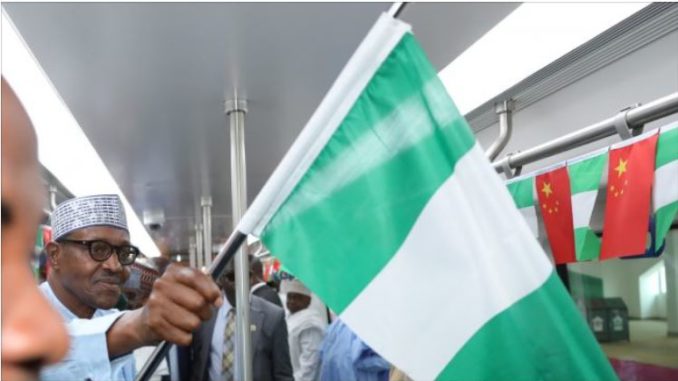
While some Nigerians are proud of their country, most bemoan their citizenship for many reasons. Many people have adduced tribalism, religion, zoning, class, gender, age, and resources mal-allocation as the causes of our lack of inclusiveness and patriotism.
Nigeria is not the only country with a heterogeneous composition, though. There are sundry countries with a plethora of ingrained variables, yet their citizens are profoundly proud of them.
Nigeria comprises three major ethnic groups and several spirited and vociferous minor linguistic groups, with three vibrant religions — Islam, Christianity and the traditional African religion — competing for a greater portion of the government. Although most Nigerians openly admit that they are Christians or Muslims, they covertly adhere to their traditional beliefs.
In essence, Nigeria is a tapestry of economic (resources), religious and ethnic concerns and massive illiteracy. She is similar to India, in terms of religious diversity, inter-class immobility, ethnic variety, massive illiteracy and disproportionate swaths of rural regions. We must note that although Hinduism is the main religion in India, it is home to over two hundred million Muslims, in addition to several tens of millions of Silks and Buddhists. Besides, India is populated by white, black and oriental Indians.
Therefore, adopting the United States’ experience as a benchmark for our conglomerate is unavailing. In spite of the profound issues similar to ours, India is making profound strides in diversifying its economy, uplifting millions from poverty, becoming a developed nation and abating religious, nationalistic and racial tensions, while simultaneously spawning patriotic fervor among the Indians at home and in Diaspora.
If India can enhance inclusiveness of its racial, religious, and cultural diversities in spite of its caste system, there is hope for Nigerians and Nigeria to create an enabling environment and the right atmosphere for a profoundly inclusive Nigeria through proactive and productive programmes at all levels.
A disparity in the allocation of resources, pro-religion policies, gender-biased culture, ethnic domination and inequality before the law, among others, deepens alienation: real or perceived. There is nothing extra-ordinary about challenges being intrinsic to any country. Tensions, fictions, disagreements and conflicts are inseparable consequences of peoples, cultures, religions, and systems coming together in any group, formal or informal. Not putting profound efforts to make the constituent parts of the group work in a meaningful way to satisfying its members’ interests in varying degrees is the problem.
Nobody or constituent unit would expect a complete satisfaction of its needs or demands. In most cases, the units settle for an arrangement that would enable them to meet their critical needs holistically or partially or incrementally. But it is a totally different situation when a country’s leadership is reluctant to discharge its responsibilities to the citizenry. It is unacceptable when the looters of the treasury are not held accountable because they belong to a particular tribe, political party, religion, moneyed class or profession.
It is much easier to ask the South Koreans and Brazilians to be loyal to their countries than Nigerians because they have witnessed the conviction and imprisonment of their former presidents for corruption. In both countries and many others, the letter and the spirit of the law are enforced fairly. It should not startle Nigerians that in many poor parts of the USA, volunteer fire and police departments, free food pantries, free clothing respositories and free lodgings have sprung up for the needy out of altruism and patriotism.
The point is that the citizenry will latch on to the country whose leadership is transparent, trustworthy and committed to poverty-alleviation programmes, infrastructural development, easy access to education and health care, upward mobility, equality before the law, gender-parity, religious neutrality and economic fairness, thereby ebbing uproar against marginalisation. The take-away is that inclusiveness is goaded by a causal relationship. You cannot ask the following to be patriotic when the leadership is recklessly unpatriotic in their deeds. An obese, ostentatious and imperious pastor cannot preach the sermon of perseverance to poverty-ridden, jobless and overwrought congregants without suffering loss of membership.
Needless to reiterate that if the present Federal Government can uniformly and sincerely apply and enforce accountability and the rule of law across the country to the extent that it can recover stolen money and imprison culprits so as to serve as a deterrent against future thefts, the government can plough such recuperated money into free education at all levels in public schools and free health services in all the government hospitals.
Consequently, it would be extremely difficult for the ethnic matadors, political opportunists, religious fanatics and economic exploiters to hide under the hitherto divisive issues to alienate anybody or group in order to achieve their self-serving goals. For us to ask for a developed and united Nigeria, we must invest in improving material conditions and enhancing the quality of life before we can ask Nigerians to show commitment to the nation.
A case for inclusiveness in Nigerian context loses its lustre if it fails to encompass our cultures and traditions. It is imperative for the country to allot the same reverence to traditional religions that has been accorded to imposed faiths: Christianity and Islam.
For profound inclusiveness to be a reality, all the subsets of inclusiveness should be attended to in varying degrees of consequences to national unity, peace and growth. Such a body should report to the President on how such a symbiotic, inter-ministerial cooperation is maximising inclusion, patriotism, tolerance and development in its bid to morph this country from mere aggregation of diverse components into a synergic and organic national entity incubating improved religious tolerance, ethnic fairness, economic equity, social justice, gender parity and pro-public politics.
Segun Olatunji contributed this piece from Abuja
END

Be the first to comment